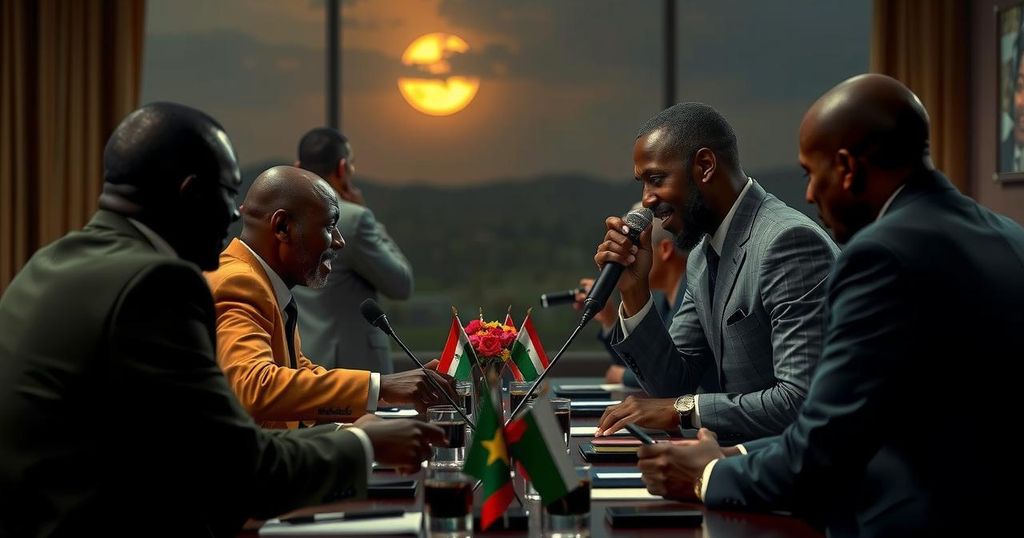South Sudan’s holdout groups have agreed to resume peace talks in Nairobi following discussions with Kenyan President William Ruto. This revival aims to mediate differences between the government and opposition factions, crucial for regional stability and peace. President Ruto emphasized the necessity of inclusive dialogue, while progress has already been made on several key protocols addressing reconciliation and state rebuilding.
In a significant development for South Sudan, holdout groups who did not sign the 2018 peace agreement have consented to resume peace negotiations in Nairobi. This decision comes after lengthy discussions characterized by concerns over security and dissatisfaction with previous processes. Kenyan President William Ruto recently engaged with South Sudanese leaders, including President Salva Kiir and First Vice President Riek Machar, to facilitate this renewed dialogue. President Ruto, acknowledging his role as a guarantor of the peace process, emphasized the importance of inclusive dialogue to achieve sustainable peace in South Sudan. He stated that the parties involved in the peace process have committed to addressing unresolved issues during the forthcoming talks, which have been branded as the Tumaini Initiative, initially launched in May 2023. The participation of the Intergovernmental Authority on Development (Igad), the original mediator of the 2018 peace agreement, will enhance regional support for the talks, which aims to incorporate the perspectives of non-signatories into the peace framework. These developments are paramount, as peace is deemed essential for the economic recovery of South Sudan and the surrounding region. State House in Nairobi highlighted that recent negotiations have made progress on six out of nine key protocols concerning reconciliation, justice, power sharing, and sustainable state rebuilding strategies. Despite earlier setbacks, including the withdrawal of Juba’s delegation for consultations, the ongoing talks have garnered support from previously hesitant holdout groups, some of which participated by sending observers. The ongoing discussions are crucial as South Sudan’s coalition government has recently extended its mandate for an additional two years, postponing elections initially scheduled for December 2023. Historical insights reveal that the current mediation led by Lt-Gen (Rtd) Lazarus Sumbeiywo, known for his role in South Sudan’s 2005 peace agreement, aims to forge a constitution that could prevent future conflicts. With various factions increasingly receptive to mediation efforts, the international community remains hopeful that these peace talks will lead to a durable solution to the ongoing instability in South Sudan and address the regional consequences of the conflicts instigated by holdout groups.
The peace process in South Sudan has been fraught with challenges since the signing of the 2018 agreement aimed at resolving protracted conflicts that have long plagued the country. A major point of contention has been the inclusion of holdout groups that refused to sign the original agreement, leading to ongoing tensions and violence. Recognizing the imperative for durable peace, President William Ruto of Kenya has stepped in as a mediator, initiating a platform for dialogue that seeks to engage all relevant stakeholders, particularly aiming to reconcile the government and opposition factions. The involvement of regional bodies like Igad underscores the broader regional commitment to stability and recovery in South Sudan.
The agreement by South Sudan’s holdout groups to return to peace negotiations in Nairobi marks a pivotal step toward resolving the ongoing conflicts that have destabilized the nation. With renewed mediation efforts led by President Ruto and the involvement of Igad, there is cautious optimism for achieving lasting peace. The proactive engagement of regional powers and the alignment of various factions on pivotal issues suggest a potential turning point for South Sudan, fostering hopes for economic recovery and stability in the region.
Original Source: www.theeastafrican.co.ke







